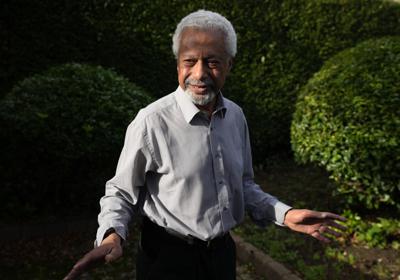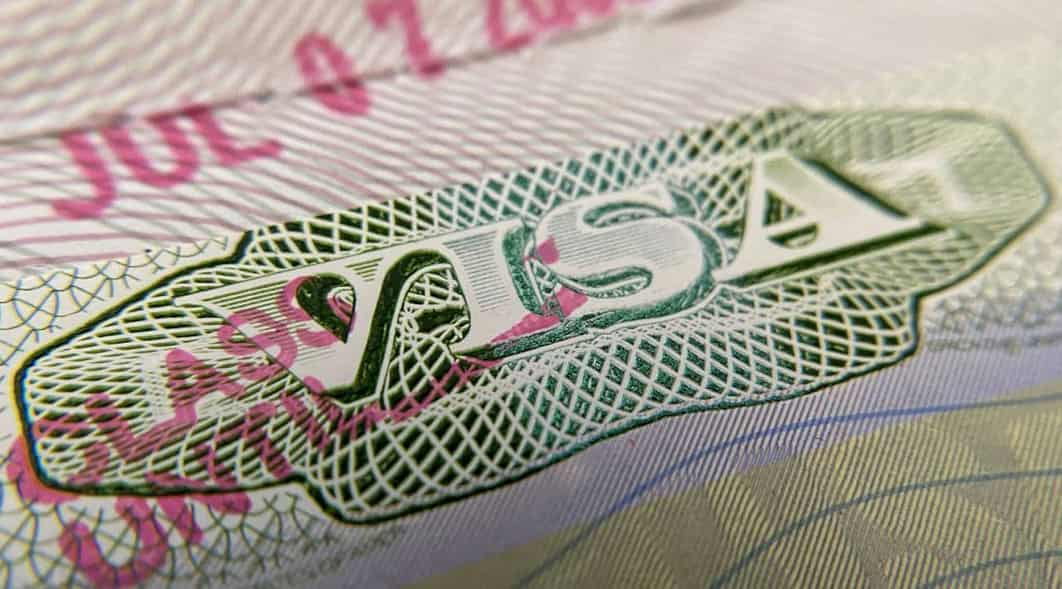Headline
Tanzanian Abdulrazak Gurnah Awarded Nobel Literature Prize

U.K.-based Tanzanian writer Abdulrazak Gurnah, whose experience of crossing continents and cultures has fed his novels about the impact of migration on individuals and societies, won the Nobel Prize for Literature on Thursday.
The Swedish Academy said the award was in recognition of Gurnah’s “uncompromising and compassionate penetration of the effects of colonialism and the fate of the refugee.”
Gurnah, who recently retired as a professor of post-colonial literatures at the University of Kent, got the call from the Swedish Academy in the kitchen of his home in southeast England — and initially thought it was a prank.
He said he was “surprised and humbled” by the award.
Gurnah said the themes of migration and displacement that he explored “are things that are with us every day” — even more now than when he came to Britain in the 1960s.
“People are dying, people are being hurt around the world. We must deal with these issues in the most kind way,” he said.
“It’s still sinking in that the Academy has chosen to highlight these themes which are present throughout my work, it’s important to address and speak about them.”
Born in 1948 on the island of Zanzibar, now part of Tanzania, Gurnah moved to Britain as a teenage refugee in 1968, fleeing a repressive regime that persecuted the Arab Muslim community to which he belonged.
He has said he “stumbled into” writing after arriving in England as a way of exploring both the loss and liberation of the emigrant experience.
Gurnah is the author of 10 novels, including “Memory of Departure,” “Pilgrims Way,” “Paradise” — shortlisted for the Booker Prize in 1994 — “By the Sea,” “Desertion” and “Afterlives.” The settings range from East Africa under German colonialism to modern-day England. Many explore what he has called “one of the stories of our times”: the profound impact of migration both on uprooted people and the places they make their new homes.
Gurnah, whose native language is Swahili but who writes in English, is only the sixth Africa-born author to be awarded the Nobel for literature, which has been dominated by European and North American writers since it was founded in 1901.
Nigerian writer Wole Soyinka, who won the Nobel Literature prize in 1986, welcomed the latest African Nobel laureate as proof that “the Arts — and literature in particular — are well and thriving, a sturdy flag waved above depressing actualities” in “a continent in permanent travail.”
READ ALSO: Full Speech Of President Buhari’s 2022 Budget Presentation
“May the tribe increase!” Soyinka told the AP in an email.
Anders Olsson, chairman of the Nobel Committee for literature, called Gurnah “one of the world’s most prominent post-colonial writers.” He said it was significant that Gurnah’s roots are in Zanzibar, a polyglot place that “was cosmopolitan long before globalization.”
“His work gives us a vivid and very precise picture of another Africa not so well known for many readers, a coastal area in and around the Indian Ocean marked by slavery and shifting forms of repression under different regimes and colonial powers: Portuguese, Indian, Arab, German and the British,” Olsson said.
He said Gurnah’s characters “find themselves in the gulf between cultures … between the life left behind and the life to come, confronting racism and prejudice, but also compelling themselves to silence the truth or reinventing a biography to avoid conflict with reality.”
Luca Prono said on the British Council website that in Gurnah’s work, “identity is a matter of constant change.” The academic said Gurnah’s characters “unsettle the fixed identities of the people they encounter in the environments to where they migrate.”
News of the award was greeted with excitement in Zanzibar, where many remembered Gurnah and his family — though few had actually read his books.
Gurnah’s books are not required reading in schools there and “are hardly to be found,” said the local education minister, Simai Mohammed Said, whose wife is Gurnah’s niece. But, he added, “a son of Zanzibar has brought so much pride.”
“The reaction is fantastic. Many are happy but many don’t know him, though the young people are proud that he’s Zanzibari,” said Farid Himid, who described himself as a local historian whose father had been a teacher of the Quran to the young Gurnah. “I have not had the chance to read any of his books, but my family talked about it.”
Gurnah didn’t often visit Zanzibar, he said, but he has suddenly become the talk of young people in the semiautonomous island region.
“And many elder people are very, very happy. Also me, as a Zanzibari. It’s a new step to make people read books again, since the internet has taken over.”
The prestigious award comes with a gold medal and 10 million Swedish kronor (over $1.14 million). The money comes from a bequest left by the prize’s creator, Swedish inventor Alfred Nobel, who died in 1895.
Last year’s prize went to American poet Louise Glück. Glück was a popular choice after several years of controversy. In 2018, the award was postponed after sex abuse allegations rocked the Swedish Academy, the secretive body that chooses the winners. The awarding of the 2019 prize to Austrian writer Peter Handke caused protests because of his strong support for the Serbs during the 1990s Balkan wars.
On Monday, the Nobel Committee awarded the prize in physiology or medicine to Americans David Julius and Ardem Patapoutian for their discoveries into how the human body perceives temperature and touch.
The Nobel Prize in physics was awarded Tuesday to three scientists whose work found order in seeming disorder, helping to explain and predict complex forces of nature, including expanding our understanding of climate change.
Benjamin List and David W.C. MacMillan were named as laureates of the Nobel Prize for chemistry Wednesday for finding an easier and environmentally cleaner way to build molecules that can be used to make compounds, including medicines and pesticides.
Still to come are prizes for outstanding work in the fields of peace, on Friday, and economics, on Monday.
(AP)
Headline
Why Europe Is Blocking More Nigerian Goods At Its Borders

Nigeria’s exports continue to face repeated rejection in European Union markets, a challenge caused by consistent quality failures, weak regulatory enforcement, and heavy dependence on raw commodities.
New trade figures further show that while export values expressed in naira have risen sharply, dollar earnings have continued to decline, undermining Nigeria’s competitiveness abroad.
Meanwhile, South Africa remains one of the African countries with the highest rate of export acceptance in Nigeria and the EU, highlighting the gaps between both economies’ standards and certification systems.
According to data from International Trade Centre (ITC) , Nigeria’s export earnings fell for a second consecutive year in 2024, dropping by 8.5% to $57.9 billion.
The figure had already declined from $63.3 billion in 2022 to $60.65 billion in 2023. In naira terms, however, total exports rose from ₦26.8 trillion in 2022 to ₦36 trillion in 2023 and surged to ₦77.4 trillion in 2024.
These increases reflect the naira’s steep depreciation, not an improvement in the volume or acceptance of Nigerian goods overseas.
Intelpoint data show that the naira weakened from ₦645.2 to the dollar at the end of 2023 to ₦1,478.9 in 2024, marking the sharpest yearly decline in a decade.
READ ALSO:US To Cut Military Aid To European Countries Near Russia — Official
EU border agencies have repeatedly rejected Nigerian agricultural and manufactured goods for failing to meet essential sanitary and phytosanitary requirements.
Frequent violations include excessive pesticide residue, poor traceability, contamination detected during inspection, and inconsistencies in certification documentation issued in Nigeria.
These failures stem largely from fragmented supply chains, weak monitoring capacity and a lack of internationally accredited laboratories.
South Africa, Morocco and Kenya maintain far stronger conformity systems, and South Africa in particular consistently delivers some of the highest acceptance rates across EU ports.
The ITC figures show that oil remains the backbone of Nigeria’s exports, contributing nearly 90 per cent of total earnings between 2022 and 2024. Over that period, the country earned $163.2 billion from crude oil out of total export revenues of $181.8 billion.
Despite this dominance, oil earnings have continued to fall, declining from $57.4 billion in 2022 to $55.6 billion in 2023 and then to $50.3 billion in 2024.
Because crude prices are determined externally and the product is exported with limited value addition, Nigeria gains little competitive advantage from currency depreciation.
READ ALSO:US To Cut Military Aid To European Countries Near Russia — Official
Non-oil exports recorded mixed fortunes. Cocoa earnings rose from $679 million in 2022 to $759 million in 2023 and climbed sharply to $2.6 billion in 2024.
Fertiliser exports fell from $1.9 billion in 2022 to $935.4 million in 2024. Ores and residues, however, increased from $158.6 million in 2023 to $824.4 million in 2024.
Despite positive growth in some sectors, quality problems have continued to undermine acceptance in Europe, particularly for foods such as beans, palm oil and processed crops.
Nigeria recorded stronger performance in African markets in 2024 due to the relative strength of the West African CFA franc.
Companies such as Unilever Nigeria, Cadbury Nigeria and Guinness Nigeria reported export sales of ₦22.8 billion in 2024, up from ₦9.92 billion in the preceding year. EU markets, however, maintain stricter inspection standards, and Nigeria’s structural weaknesses continue to limit penetration.
The country’s export structure remains heavily constrained by outdated processing technology, weak inspection capacity, irregular regulatory monitoring, and an overreliance on raw commodities.
READ ALSO:Putin Says Russia Ready For War, Blames Europe For Sabotaging Peace
Also, pipeline vandalism and crude theft also prevent Nigeria from meeting its production benchmark of 1.7 million barrels per day, despite a rise to 1.5 million barrels per day in 2024.
In December 2023, the Federal Government introduced the Trade Policy of Nigeria (2023–2027), aimed at aligning export regulations with World Trade Organisation rules and boosting global competitiveness.
The policy forms part of a wider reform agenda tied to the Medium-Term National Development Plan (2021–2025) and Agenda 2050.
Despite these initiatives, limited investment in quality assurance, industrial processing and standards enforcement continues to weaken Nigeria’s acceptance in high-value markets such as the EU.
Headline
US Imposes Visa Restrictions On Nigerians Linked To Religious Freedom Violations

The United States government on Wednesday announced visa restrictions targeting individuals involved in violations of religious freedom in Nigeria. The measures may also extend to immediate family members of the affected persons.
In a statement titled “Combating Egregious Anti-Christian Violence in Nigeria and Globally”, the Department of State said the restrictions were being implemented in response to mass killings and attacks on Christians by radical Islamic terrorists, Fulani militias, and other violent actors in Nigeria and elsewhere.
The statement explained that under Section 212(a)(3)(C) of the Immigration and Nationality Act, the State Department would now have the authority to deny visas to those who have “directed, authorised, significantly supported, participated in, or carried out violations of religious freedom,” with the policy potentially extending to their immediate family members.
READ ALSO:US Visa Adjudication Sparks Concerns Over Diplomatic Relations
It further cited former President Donald Trump’s remarks, noting that the United States “cannot stand by while such atrocities are happening in Nigeria, and numerous other countries.” The policy will apply to Nigeria and other governments or individuals implicated in violations of religious freedom.
The announcement follows growing international concern over attacks on religious communities in Nigeria, including targeted killings, abductions, and destruction of property attributed to armed groups.
Headline
Putin Says Russia Ready For War, Blames Europe For Sabotaging Peace

Russian President Vladimir Putin said on Tuesday that Russia was “ready” for war if Europe seeks one, accusing the continent’s leaders of trying to sabotage a deal on the Ukraine conflict before he met with US envoys.
The comments came as US envoy Steve Witkoff and President Donald Trump’s son-in-law Jared Kushner were in Moscow for high-stakes talks on ending the nearly four-year war, which were preceded by days of intense diplomacy.
“We are not planning to go to war with Europe, but if Europe wants to and starts, we are ready right now,” Putin told reporters in Moscow.
READ ALSO:Trump Blasts Ukraine For ‘Zero Gratitude’ Amid Talks To Halt War
“They have no peaceful agenda, they are on the side of war,” he added, repeating his claim that European leaders were hindering US attempts to broker peace in Ukraine.
He added that European changes to Trump’s latest plan to end the war “aimed solely at one thing — to completely block the entire peace process and put forward demands that are absolutely unacceptable for Russia”.
Washington has presented a 28-point draft to end the conflict, later amended after criticism from Kyiv and Europe, which viewed it as heeding to many of Russia’s maximalist demands.
READ ALSO:Trump Urged Ukraine To Give Up Land In Peace Deal Talks — Official
The plan to end the war is championed by Trump, but European countries fear it risks forcing Kyiv to cave in to Russian demands, notably on territory.
Fearing further Russian aggression, Europe has repeatedly said an unfair peace should not be imposed on Ukraine.
The Trump envoys are now seeking to finalise the plan with the approval of Moscow and Kyiv.
AFP

 Headline5 days ago
Headline5 days agoFULL LIST: US To Review Green Cards From 19 ‘Countries Of Concern’ After Washington Shooting

 News5 days ago
News5 days ago(VIDEO) Obasanjo To Tinubu: Why Are We Negotiating With Bandits?

 Politics4 days ago
Politics4 days agoTinubu Sends Ex-INEC Chair, Former Oyo First Lady, 30 Additional Ambassadorial Nominees To Senate

 News3 days ago
News3 days agoInsecurity: What Sheikh Gumi Told Me After Visiting Bandits Hideouts — Obasanjo

 News2 days ago
News2 days agoBREAKING: Ex-CDS Musa meets Tinubu At Aso Villa

 News5 days ago
News5 days agoVIDEO: Jonathan Breaks Silence On Guinea-Bissau’s Military Takeover

 News3 days ago
News3 days agoFULL LIST: Wike revokes land belonging to Ilorin Emir, Lamido, Fayose, Iyabo Obasanjo, Others In Abuja

 Entertainment4 days ago
Entertainment4 days agoOrganizers Cancel Burna Boy’s US Shows After Fans Refused To Buy Tickets

 News5 days ago
News5 days agoWhy I Returned To Nigeria On Ivorian Jet — Jonathan

 News2 days ago
News2 days agoMOWAA: Why I Will Not Appear Before Edo Assembly Panel — Obaseki




















